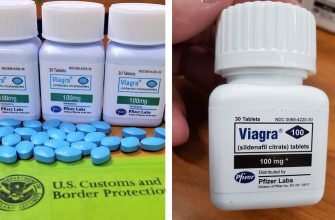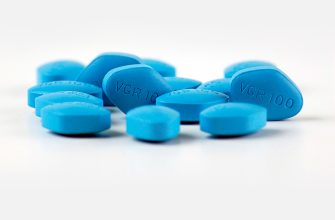Combining Viagra (sildenafil) and beta-blockers requires caution. Beta-blockers can lower blood pressure, and Viagra can have a similar effect. This interaction might lead to dizziness or fainting, especially in individuals already prone to low blood pressure.
Always consult your doctor before using Viagra if you’re on beta-blockers. Your physician can assess your individual health profile and determine the safest course of action. They might suggest alternative treatments or adjust your medication dosages to minimize potential risks.
Specific beta-blockers vary in their interaction strength with Viagra. Some may cause more pronounced blood pressure drops than others. Open communication with your doctor is paramount to ensure your safety and efficacy of treatment. This discussion should cover all your medications, including over-the-counter drugs and supplements.
Remember that this information is for general knowledge and does not replace professional medical advice. Never self-medicate; always seek guidance from a qualified healthcare professional before making changes to your medication regimen.
- Viagra and Beta Blockers: A Detailed Look
- Understanding the Interaction
- Recommendations and Precautions
- Specific Beta-Blockers and Considerations
- Alternative Approaches
- Understanding Beta Blockers and Their Effects
- Common Effects
- Potential Side Effects
- Specific Interactions with Viagra (Sildenafil)
- How Viagra Works: Mechanism of Action
- cGMP’s Role in Erection
- Viagra’s Action
- Important Considerations
- Potential Drug Interactions
- Potential Interactions Between Viagra (Sildenafil) and Beta Blockers
- Understanding the Mechanisms
- Managing Potential Risks
- Specific Beta-Blockers and Considerations
- Seeking Professional Guidance
- Specific Beta Blockers and Their Interaction with Viagra
- Atenolol and Metoprolol
- Other Beta-Blockers
- Important Note:
- Symptoms of Interaction: What to Watch For
- Other Potential Signs
- Severity and Response
- Managing the Risk: Doctor’s Consultation is Crucial
- Alternative Treatments for Erectile Dysfunction
- Herbal Remedies and Supplements
- Therapy and Counseling
- Penile Implants
- Hormone Replacement Therapy
- Addressing Blood Pressure Concerns
- When to Seek Immediate Medical Attention
Viagra and Beta Blockers: A Detailed Look
Combining Viagra (sildenafil) and beta-blockers requires careful consideration. Beta-blockers, used to treat high blood pressure and other conditions, can lower blood pressure, potentially interacting with Viagra, which also affects blood pressure. This interaction might cause dizziness or fainting, especially in individuals already susceptible to low blood pressure.
Understanding the Interaction
Viagra increases blood flow, primarily to the penis. Beta-blockers, conversely, reduce blood pressure and slow the heart rate. This combination could lead to a significant drop in blood pressure, potentially causing adverse effects. The severity depends on several factors including the specific beta-blocker, the Viagra dosage, and the individual’s health status.
Recommendations and Precautions
Consult your doctor before combining Viagra and beta-blockers. They will assess your overall health, consider your specific medications, and determine if this combination is safe for you. Your doctor might adjust dosages or suggest alternative medications to minimize risks. Monitor your blood pressure regularly, especially when starting or changing medications. Report any symptoms like dizziness, lightheadedness, or fainting to your healthcare provider immediately.
Specific Beta-Blockers and Considerations
Some beta-blockers may have stronger interactions with Viagra than others. This highlights the importance of open communication with your doctor about all your medications. They can provide personalized advice based on your unique circumstances. Be aware that even over-the-counter medications and supplements can interact with prescription drugs.
Alternative Approaches
If a beta-blocker is medically necessary and Viagra is desired, your doctor might explore alternative treatment options for erectile dysfunction or adjust the dosages to minimize risks. They may also consider different types of blood pressure medication that have less potential for interaction.
Understanding Beta Blockers and Their Effects
Beta blockers reduce the effects of adrenaline and noradrenaline, hormones that increase heart rate and blood pressure. They achieve this by blocking beta receptors in your heart and blood vessels.
Common Effects
- Lowered heart rate: Expect a slower, more regular heartbeat.
- Reduced blood pressure: This can help manage hypertension.
- Decreased angina (chest pain): Beta blockers relax blood vessels, improving blood flow to the heart.
The specific effects vary based on the type and dosage of beta blocker prescribed, as well as individual factors like age and overall health.
Potential Side Effects
- Fatigue: Tiredness is a common side effect.
- Dizziness: Some individuals experience lightheadedness.
- Cold hands and feet: Reduced blood flow to extremities can occur.
- Sleep disturbances: Difficulty sleeping or insomnia can happen.
It’s crucial to discuss any concerning side effects with your doctor. They can adjust your dosage or prescribe an alternative medication.
Specific Interactions with Viagra (Sildenafil)
Beta blockers and Viagra can interact, potentially lowering blood pressure significantly. This combination may cause dizziness or fainting. Always inform your doctor about all medications you are taking, including Viagra, before starting beta blocker therapy.
- Open communication with your physician is key to safe and effective medication management.
- Regular checkups allow for monitoring and adjustment of medication as needed.
- Never self-adjust your medication dosage.
How Viagra Works: Mechanism of Action
Viagra, or sildenafil, primarily targets a specific enzyme called phosphodiesterase-5 (PDE5). PDE5 breaks down a crucial molecule called cyclic guanosine monophosphate (cGMP).
cGMP’s Role in Erection
cGMP plays a vital role in achieving and maintaining an erection. When sexually stimulated, nitric oxide (NO) is released. This NO increases cGMP levels, relaxing the smooth muscles in the penis, increasing blood flow and resulting in an erection.
Viagra’s Action
By inhibiting PDE5, Viagra prevents the breakdown of cGMP. This leads to elevated cGMP levels, prolonging the effects of NO and facilitating the relaxation of penile muscles. The increased blood flow consequently produces and sustains an erection.
Important Considerations
Note: Viagra’s effectiveness depends on sexual stimulation. It doesn’t cause spontaneous erections. Also, individual responses to Viagra vary. Always consult a doctor before use.
Potential Drug Interactions
Caution: Viagra can interact negatively with certain medications, notably nitrates. This combination can cause a significant drop in blood pressure. Always inform your doctor about all medications you are taking before starting Viagra.
Potential Interactions Between Viagra (Sildenafil) and Beta Blockers
Combining Viagra and beta-blockers might lower blood pressure significantly, sometimes causing dizziness or fainting. This is because both medications affect blood pressure, albeit in different ways. Viagra relaxes blood vessels, increasing blood flow, while beta-blockers slow the heart rate and reduce blood vessel constriction.
Understanding the Mechanisms
Viagra increases nitric oxide production, leading to vasodilation (widening of blood vessels). Beta-blockers, conversely, block the effects of adrenaline and noradrenaline on the heart and blood vessels, reducing heart rate and blood pressure.
- Viagra’s effect: Increased blood flow, potentially lowering blood pressure.
- Beta-blocker’s effect: Decreased heart rate and blood vessel constriction, lowering blood pressure.
This combined effect can be particularly pronounced in individuals already having low blood pressure or heart conditions. Always inform your doctor about all medications you are taking.
Managing Potential Risks
Your doctor may adjust your dosages or prescribe alternative medications if you need to take both Viagra and a beta-blocker. This is a critical aspect of safe medication use.
- Honest Disclosure: Completely disclose your medication history to your doctor or pharmacist.
- Dosage Adjustments: Your doctor might modify the dose of either or both medications to minimize interaction effects.
- Alternative Medications: In some cases, switching to different medications may be necessary.
- Monitoring: Regular check-ups to monitor blood pressure and heart function are recommended.
Specific Beta-Blockers and Considerations
The interaction’s severity varies depending on the specific beta-blocker used and its dose. Some beta-blockers might cause a more pronounced interaction than others. Consult your physician for tailored advice.
Seeking Professional Guidance
Never self-medicate or make changes to your prescription without consulting your doctor. They can provide personalized recommendations based on your health status and medical history, ensuring your safety and well-being.
Specific Beta Blockers and Their Interaction with Viagra
Consult your doctor before combining Viagra (sildenafil) with any beta-blocker. The interaction depends heavily on the specific beta-blocker and your individual health profile. Some beta-blockers, like metoprolol and atenolol, may slightly increase Viagra’s side effects such as dizziness or low blood pressure, especially at higher doses. This is because both medications affect blood pressure.
Atenolol and Metoprolol
With atenolol and metoprolol, careful monitoring of blood pressure is advisable, particularly during initial use. Your doctor might adjust your dosage of either medication to minimize potential risks. Regular check-ups are key for safe co-administration.
Other Beta-Blockers
Nebivolol, bisoprolol, and carvedilol can also interact with Viagra, though potentially to a lesser extent. While the interactions may be less pronounced, open communication with your physician remains critical. They can assess your specific circumstances and provide personalized advice regarding dosage and potential side effects.
Important Note:
This information is for general knowledge and does not replace professional medical advice. Always discuss potential drug interactions with your doctor or pharmacist before combining medications. They can assess your health status, consider other medications you take, and provide tailored guidance.
Symptoms of Interaction: What to Watch For
Monitor your blood pressure closely. A significant drop, especially after taking Viagra, warrants immediate medical attention. Dizziness or lightheadedness are common indicators of low blood pressure.
Pay attention to changes in your heart rate. Both an abnormally slow or fast heart rate could signal a problem. Chest pain or discomfort needs prompt medical evaluation.
Fainting or near-fainting episodes require immediate medical assistance. These are serious symptoms and should not be ignored.
Other Potential Signs
While less common, be aware of potential shortness of breath or difficulty breathing. These respiratory issues could be connected to the interaction.
Muscle weakness or unusual fatigue can also be a sign of interaction. Note any unusual tiredness beyond what you normally experience.
Severity and Response
The severity of symptoms varies greatly depending on individual factors. Consult your doctor or pharmacist if you experience any unexpected side effects after taking Viagra with beta-blockers.
| Symptom | Severity | Action |
|---|---|---|
| Low blood pressure (dizziness, lightheadedness) | Mild to Severe | Seek medical attention |
| Abnormal heart rate (too fast or too slow) | Mild to Severe | Contact your doctor |
| Chest pain | Severe | Seek immediate medical attention |
| Fainting | Severe | Call emergency services |
| Shortness of breath | Mild to Severe | Contact your doctor |
| Muscle weakness/fatigue | Mild to Moderate | Consult your doctor |
Managing the Risk: Doctor’s Consultation is Crucial
Schedule a thorough consultation with your doctor before combining Viagra and beta-blockers. This is paramount for your safety.
Your physician will assess your overall health, considering:
- Your medical history, including existing conditions like heart disease or high blood pressure.
- Current medications, ensuring there are no harmful interactions.
- Your lifestyle factors, such as smoking, diet, and exercise.
Based on this evaluation, your doctor can:
- Determine the safest dosage of Viagra, if appropriate.
- Suggest alternative treatments if necessary.
- Monitor your response to the medication closely, adjusting the plan as needed.
Open communication with your doctor is key. Describe any side effects you experience, such as dizziness, chest pain, or vision changes. Report these promptly.
Remember, self-treating can be dangerous. Don’t rely on online advice. A personalized approach from your doctor offers the best chance for safe and successful treatment.
- Always follow your doctor’s instructions precisely.
- Never exceed the prescribed dosage.
- Report any adverse reactions immediately.
Prioritize your health and seek professional medical guidance.
Alternative Treatments for Erectile Dysfunction
Consider lifestyle changes. Regular exercise, a balanced diet, and weight management significantly improve erectile function. Aim for at least 150 minutes of moderate-intensity aerobic activity per week and incorporate strength training twice a week.
Herbal Remedies and Supplements
Some men find relief with herbal supplements like ginseng or L-arginine. However, consult your doctor before using these, as they may interact with medications or have side effects. Always choose reputable brands to ensure product quality and purity. Note that scientific evidence supporting their effectiveness for ED is limited.
Vacuum erection devices (VEDs) are another option. These devices create a vacuum to help achieve an erection. They are generally safe but require proper use and should be discussed with a physician.
Therapy and Counseling
Psychological factors often contribute to ED. Therapy, particularly cognitive behavioral therapy (CBT), can address performance anxiety and other emotional issues contributing to the problem. A therapist can provide strategies for managing stress and improving communication with your partner.
Penile Implants
For men who haven’t found success with other treatments, a penile implant is a surgical option. This involves placing inflatable or malleable rods within the penis to create an erection. Discuss the risks and benefits with your urologist to determine if it’s a suitable solution for you.
Hormone Replacement Therapy
Low testosterone levels can cause ED. Your doctor might suggest testosterone replacement therapy (TRT) if testing reveals a deficiency. This should only be considered after a thorough evaluation, as it carries potential side effects.
Addressing Blood Pressure Concerns
Consult your doctor before combining Viagra and beta-blockers. They can assess your individual risk factors and blood pressure levels.
Regular blood pressure monitoring is crucial. Home monitoring devices offer convenient, frequent checks, providing valuable data for your physician.
Lifestyle changes significantly impact blood pressure. A balanced diet low in sodium and saturated fats, coupled with regular exercise (aim for at least 150 minutes of moderate-intensity aerobic activity per week), can make a substantial difference.
Medication adjustments may be necessary. Your doctor might alter your beta-blocker dosage or prescribe additional medications to manage blood pressure effectively. Open communication about side effects is paramount.
Understand potential interactions. Some beta-blockers can mask the symptoms of a heart attack, making it essential to remain vigilant and promptly report any concerning chest pain or discomfort. Your doctor will advise on specific precautions.
Maintain open communication with your healthcare provider. Regular check-ups allow for proactive monitoring and adjustments to treatment plans, ensuring your safety and well-being.
When to Seek Immediate Medical Attention
Call emergency services (911 in the US) immediately if you experience chest pain, shortness of breath, or dizziness after taking Viagra with beta-blockers.
Seek immediate medical attention if you experience a prolonged erection (priapism) lasting more than four hours. This is a serious condition requiring prompt treatment.
Go to the nearest emergency room if you develop sudden vision changes, such as blurred vision, loss of vision, or seeing halos around lights. These can be signs of a serious side effect.
Contact your doctor immediately if you experience any of the following severe side effects:
| Symptom | Description |
|---|---|
| Severe headache | Intense, persistent headache unlike anything you’ve experienced before. |
| High blood pressure | Sustained readings significantly above your normal range. |
| Nausea and vomiting | Severe nausea accompanied by repeated vomiting. |
| Severe dizziness or fainting | Loss of consciousness or near-loss of consciousness. |
Remember, this list isn’t exhaustive, and other serious reactions are possible. Always contact your healthcare provider if you have concerns about side effects.






